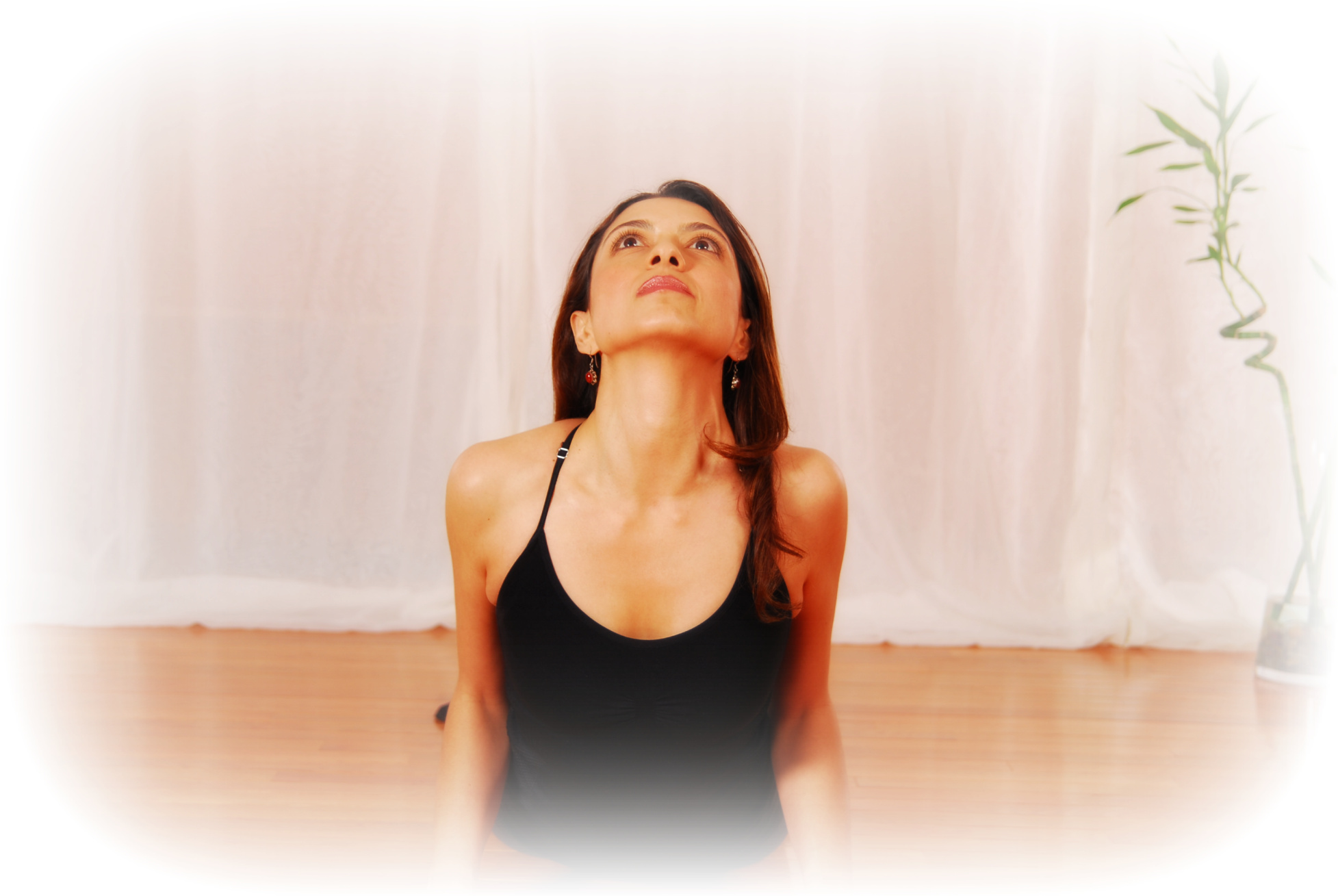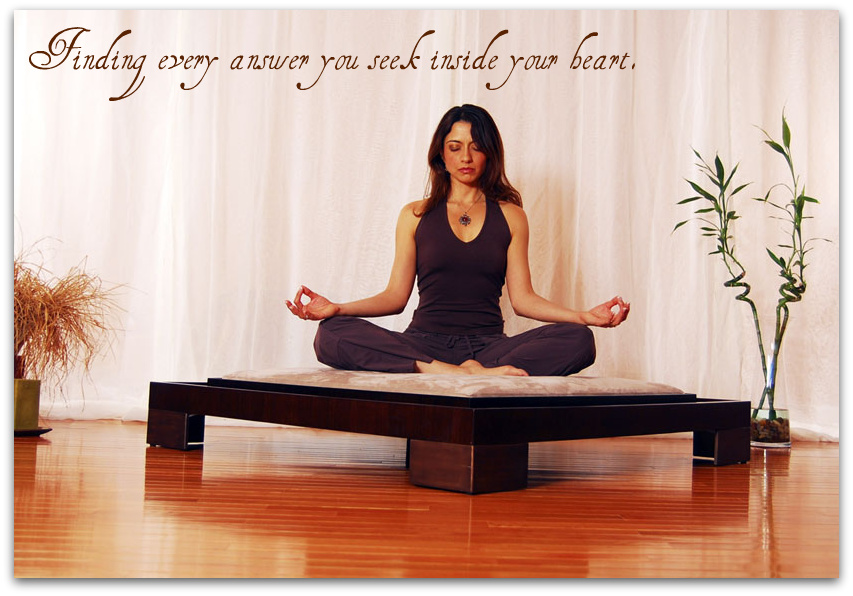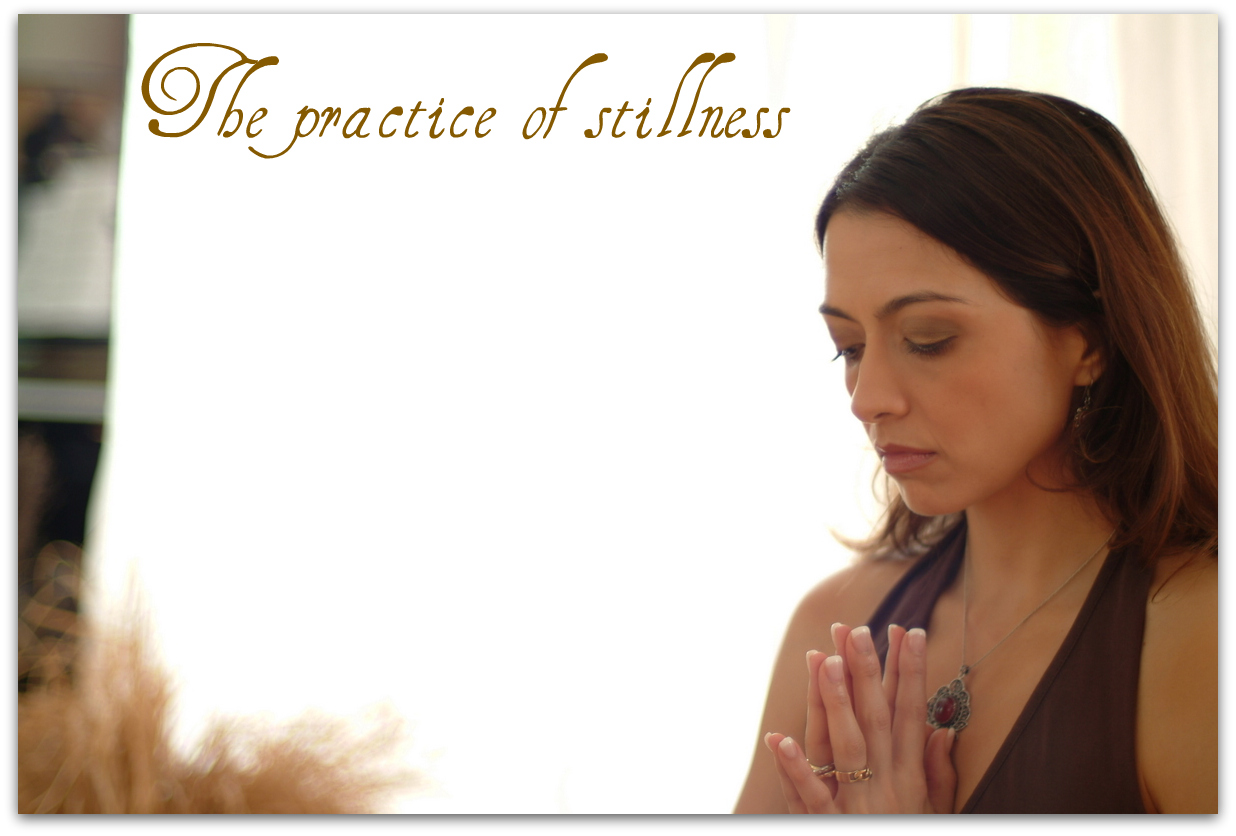It is only now, after nearly 8 years of on and off the mat yoga practice, growing, regressing, obsessing, trying, giving up, and returning again and again to yoga, that I am making a small breakthrough, one for which I dearly wish a permanent stay. The irony of the breakthrough itself is humbling. It is imperceptible in my outer form and vibrating with excitement in my inner core. [Read more…] about A Yoga Breakthrough and 8 Ways to Build a Conscious Practice
home practice
Commitment to Stillness: A Habit of Daily Meditation
Reminder: You can still grab The Positive Affirmations for Life program with more than 4 hours of audio affirmations for 7 life situations that impact your happiness and success the most.
The most rewarding things in life seem to get kick started by an unfortunate event of some sort, it seems. Or is this just true for me? Knee pain from rigorous exercise brought me to yoga.
Heart break brought me to the love of my life. And chronic pain from nerves, joints and muscles in my arms has now brought me to meditation. You know the frustration of chronic pain. It’s when everything you have tried seems ineffective after a while, and the body chooses to fight you instead of respond by healing.
This is when there is no medically obvious reason for your pain and the medical experts enter a guessing game with a sophisticated strategy also known as trial-and-error. It’s when you feel like you have neither patience nor faith left to believe that your pain will subside and your body will fully heal itself. Yes, it is that bittersweet spot of helplessness whence these words and promises flow today. It is high time for me to commit to meditation.
The practice of stillness. I have tried so many times to establish this habit. Many, many times. I would get inspired after a yoga workshop or retreat or from a book or podcast and promptly put it on the schedule: Daily Meditation, 5 minutes, increase duration weekly.
I would commit to practicing stillness and breathing without distraction. Yet, distractions always came, and I let them in with open arms. I wanted to be a steady rock on a mountain top and yet I wavered like a leaf in the wind, at the beck and call of whatever sought my attention that week, that month, that year.
Ironic as it may be, many yoga students struggle more with meditation than some of the hardest poses. In my case, I love my journey toward daily home practice, and love to twist and bend and open into that impossible pose, but please do not ask me to sit still and do nothing! Yet, ancient history tells us yoga was born for the sole purpose of opening the body to prepare it for meditation.
That without meditation, there is no yoga.
In fact, a yoga teacher friend gave me one of the more beautiful descriptions, “Yoga without Meditation is just stretching.“ Meditation is nonnegotiable in every pose. In every breath. In every moment of yoga. So if I can meditate in the poses, why can I not meditate outside of them?
Perhaps we need to answer a fundamental question first: Why Meditate at all? To relax? To gain perspective on life? To live longer? To discover more about ourselves? To become enlightened? What should be the reasons that draw us to something that requires so much commitment and so little tangible return on investment? We demand strong reasons to commit to yet another task in our lives that steals more minutes from our over-packed days, and for many of us, meditation is too quiet to make a loud compelling case. I have been one of those many until now.
My conviction is simple – first, I believe there is a reason I am turning to meditation at this point in my life. There is an inexplicable notion that I can heal myself from this pain and meditation is at the center of this force. So first and foremost, I am following my heart, and perhaps a bit of wisdom from friends. In my case then, the expected outcome is healing. I am willing to be proven wrong, but not without a fight.
What about you? There have been a thousand and one documented reasons and benefits for meditation. From Eric Schiffman‘s book, “The Practice of Moving into Stillness” to the inspiring poems of Dana Faulds, an entire spectrum of other authors, teachers, and philosophers, we learn that meditation can unlock the depths of our soul and help us firmly establish our inner well-being.
“Meditation helps me think before I act” – This is a mantra I say to myself and have come to believe. Mantras are short phrases and simple thoughts that we can latch onto and repeat quietly to ourselves during meditation or perhaps just during moments of quietude.
My point of view here is this. No one can tell you the reasons you should be meditating, least of all yours truly. So do your research. And find your reason to meditate, and when and only when you have that conviction at the pit of your belly, recognize it and allow it to happen. Go with the Flow of your Heart then.
In delaying the practice in the months and years past, I am tinged with some sorrow for not knowing what I see as obvious now. But hindsight is 20/20. We live and learn but so much the better when the latter happens sooner. I have learned these to be 3 excuses you should positively ignore when doubt sets in on your intention to meditate.
1. You need to be good or advanced at yoga to meditate — No!
Meditation does not know exclusion. You can meditate as a complete beginner, or an advanced student, and all shades in between. In fact, I think that beginners may be far more open to receiving the benefits and establishing a good habit early on.
2. You need teachers, classes and guidance to meditate — No!
You can certainly learn and benefit from a class-room guided meditation but it’s not a necessity. The resources available on the web and in books are tremendous, and you can find hundreds of podcasts and videos on self-guided meditation, and eventually, you establish the basic fundamentals and do it on your own.
3.You need to become religious or spiritual or something that you are not, in order not to meditate — No!
Meditation is about learning and discovering who you are, and it knows no discrimination. You can be an atheist, a Christian, a monk or a Buddhist. Strongly spiritual or religious people may very well meditate, but not all who do need to be so. Meditation resembles praying, and the simple act of stillness can be discomforting on many levels but it is a sweet challenge to face, unbounded to any denomination, sect or cult.
In building this daily practice, go into it with an open mind, and an unwavering determination and anticipation of good omens to come. To the best of your abilities, cultivate the habits that will ease the path, and prepare you for a journey of self-discovery.
- Listen to yourself
- Commit to Regular Practice
- Hold yourself Accountable
- Be Brave
- Be very Patient
- Have a little Faith
And remember, there is absolutely nothing to lose here, and everything to be gained. Take baby steps, take a step forth and three back, but commit and be inspired, and find your reason to start your self-discovery path.
“Go in and in.
Be the space between two cells,
the vast , resounding
silence in which
spirit dwells…..”
–Dana Faulds, “Poems from the Heart”



 I am Farnoosh, the founder of Prolific Living. So glad you are here. My mission is to empower you to unblock your creative genius to live your dream life.
I am Farnoosh, the founder of Prolific Living. So glad you are here. My mission is to empower you to unblock your creative genius to live your dream life.